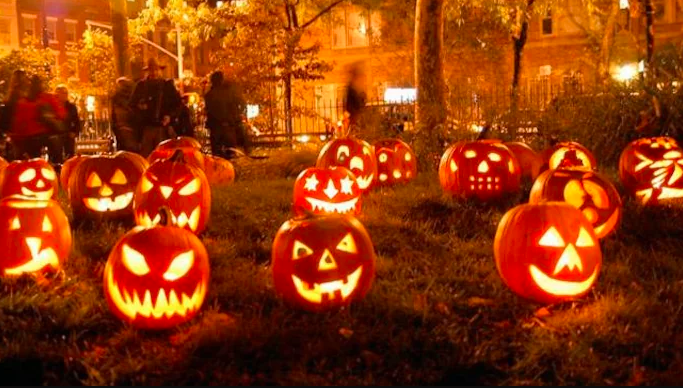While Halloween is celebrated worldwide, not all the festivities end there. For many Christians, Halloween is only the beginning of a three-day period known as Hallowtide (alternatively Allhallowtide or Hallowmas), a triduum of feasts to commemorate the dead. Each day has its own significance and observances:
31 October – All Hallows’ Eve
Today’s Halloween is an amalgamation of Celtic tradition and Christian influence. The ancient festival of Samhain was celebrated on 1 November, a time when it was believed that the boundaries separating the living and the dead grew thin. Celts would dress up in costumes and light bonfires to ward off evil spirits – traditions which are reflected in modern Halloween practices – but the church later added their own religious twist to the festival.
In the 7th century CE, Pope Boniface IV established All Saints’ Day and Pope Gregory III moved the day from 13 May to 1 November a century later, christening the pagan holiday. So, All Hallows’ Eve, or Halloween as we know it, derives its name from the main celebration of All Saints’ Day, with the word ‘hallow’ referring to a saint or holy person.
While the vigils of Catholic feasts are typically associated with fasting, some had feasts on the 31 itself. It was also customary for poor members of the community to engage in ‘souling’ where they would receive spiced pastries known as ‘soul cakes’ from affluent neighbourhoods. In exchange, they promised to pray for the souls of the deceased relatives of the household during Allhallowtide.
1 November – All Saints’ Day
Since the early days of the church (with the earliest records from the 4th century), Christians have honoured the dead. All Saints’ Day was originally dedicated to Christian martyrs, but later expanded to include all followers of Christ.
The community gathers to commemorate the memory of the dear departed, offering prayers and visiting cemeteries to place flowers or light candles on their graves.
2 November – All Souls’ Day
All Souls’ Day is the most recent addition to Hallowtide, established by St. Odilo of Cluny in the 11th century before spreading to other monasteries.
Unlike the previous days’ celebrations, it is dedicated to the souls of the faithful who have yet to be cleared of their sins and gain entrance to heaven. It was believed that offering prayers and sacrifices on their behalf could free their spirits from purgatory.
Since All Soul’s Day is tied to the Catholic idea of purgatory, the Protestant church doesn’t participate in the intercession –but for Roman Catholics and the Church of England, All Souls’ Day continues to be significant till this day.
